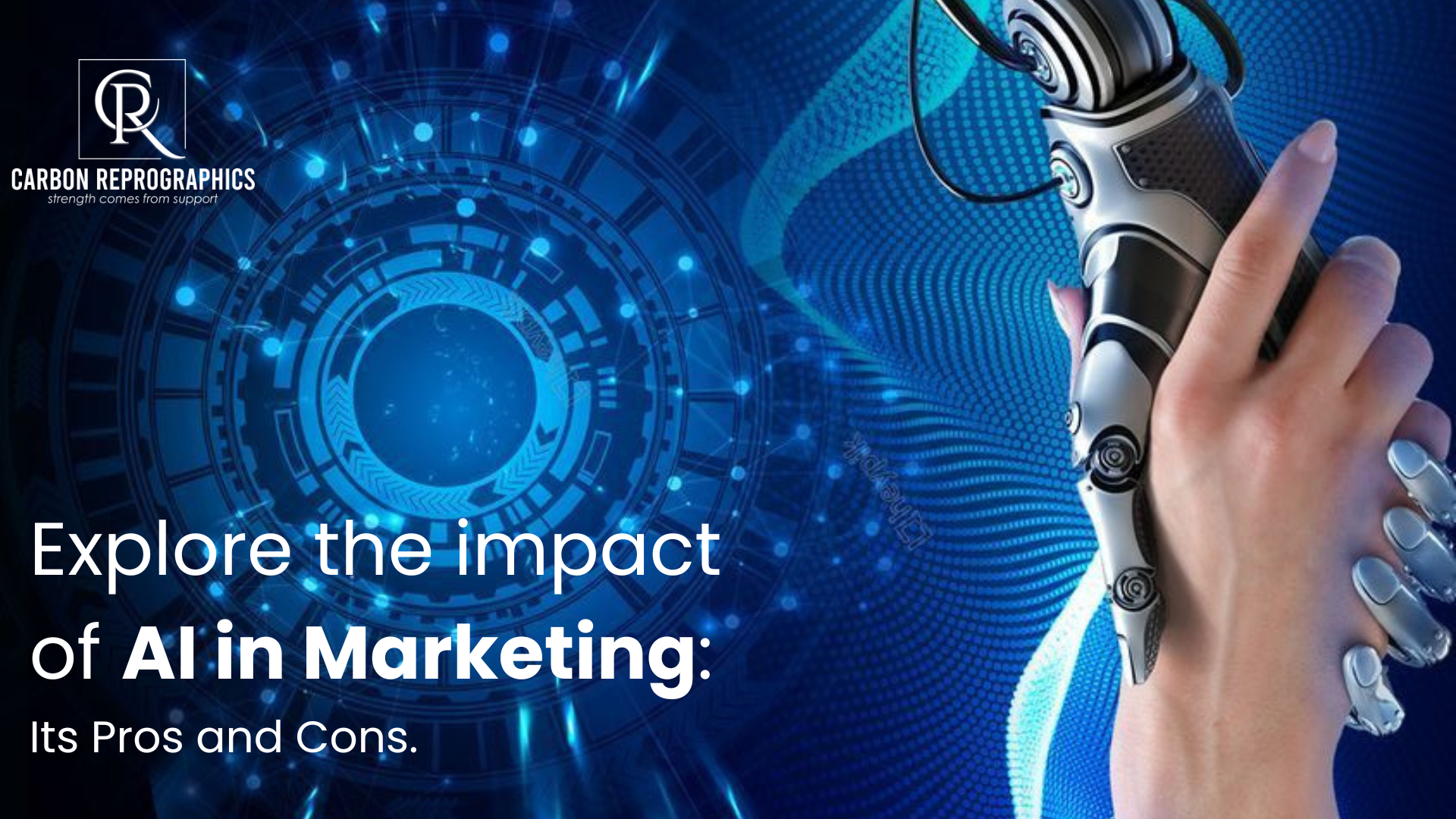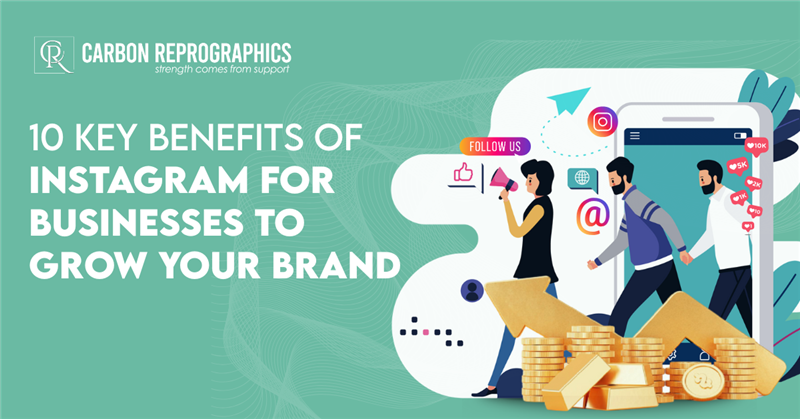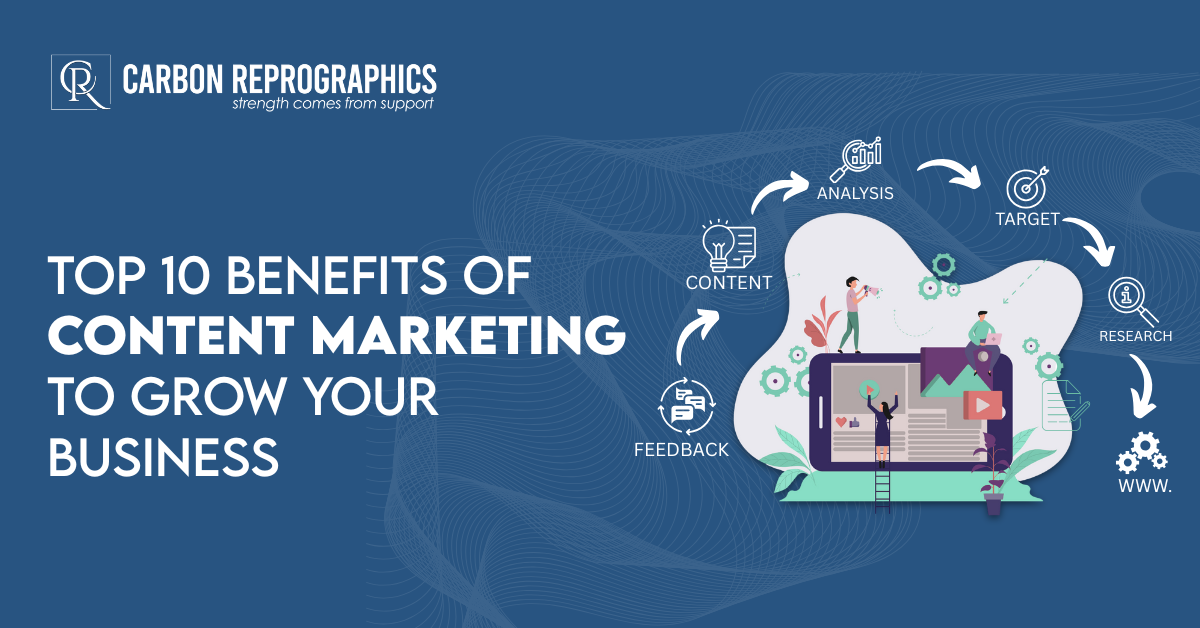-
Rise of AI in Marketing
- The Pros of AI in Marketing
- 1. Personalization at Scale
- 2. Improved Customer Experience
- 3. Enhanced Data Analysis
- 4. Automation of Repetitive Tasks
- 5. Better ROI on Marketing Campaigns
- 6. Predictive Analytics
- 7. Content Creation and Optimization
- Cons of AI in Marketing
- Optimizing AI in Marketing Tips for Balancing Technology and Creativity
- FAQs:
Recent Posts
Have you ever considered how artificial intelligence is changing AI in Marketing? It’s a tool that can help companies run better, give customers a better experience, and learn useful things. But it has some problems, just like any other tool.
In this blog post will discuss how AI in Marketing is changing business and its pros and cons. AI is changing how brands connect with customers by automating tasks and creating campaigns that are more relevant to each customer. To make it work well, though you need a good plan.
We’ll show you the good and bad things about AI in marketing, whether you want to know how it can help you make decisions or are worried about its risks. First, let’s learn how to make money with AI!
Rise of AI in Marketing
Using massive data analysis, artificial intelligence marketing enables businesses to develop better strategies and decisions. Algorithms target the right people, raise customer happiness, and help make adverts more relevant to users.AI searches data for trends and patterns, enabling duties like developing content, organizing advertising, and helping identify fresh prospects. As time passes, AI improves at recognizing and recommending things, producing experiences that satisfy consumer needs and wants.
The Pros of AI in Marketing
In more detail, let’s examine AI’s various Pros of AI in Marketing!
1. Personalization at Scale
Any company adopting artificial intelligence has changed how it interacts with its customers. Marketers can now provide targeted messages and suggestions to many users at once.
For instance, Netflix uses artificial intelligence to suggest different seasons depending on what you have seen, and Amazon does the same about preferences. This kind of customization enhances the ways companies interact with their customers and the company’s income.
2. Improved Customer Experience
Artificially intelligent assistants and chatbots, among other AI tools, can help users whenever they want. They can answer questions, solve issues, and even allow customers to purchase.
When you visit a website and a chatbot provides support, for example, that is artificial intelligence. AI lets companies respond quickly and accurately, therefore satisfying consumers.
3. Enhanced Data Analysis
Daily work for marketers involves handling a lot of data, including consumer information and purchase records. Large volumes of data swiftly handled and analyzed by artificial intelligence are lovely.
Marketers using artificial intelligence can uncover trends and patterns that common people might overlook. AI can, for example, examine consumer evaluations and identify issues that many others have. This helps businesses to enhance their offerings of goods and services.
4. Automation of Repetitive Tasks
Artificial intelligence will handle challenging and time-consuming chores so free marketers may focus on their primary business. AI might target forward business communications, social media postings, and ads.
Artificial intelligence guarantees they reach the correct individuals at the right time, and tools like HubSpot and Mailchimp schedule and refine email campaigns. This saves marketing teams time and facilitates their more effective running.
5. Better ROI on Marketing Campaigns
Artificial intelligence can enable businesses to maximize their marketing budgets by delivering the correct message to the proper people. It can determine which consumers are most likely to purchase and subsequently display adverts to businesses, optimizing their financial situation.
6. Predictive Analytics
One main advantage of artificial intelligence is its capacity to enable companies to project future popular trends. Based on past performance, artificial intelligence could forecast customer behavior, market trends, and ad success.
An artificial intelligence computer might, for example, predict October’s rise in sales of winter clothing, allowing businesses to plan their campaigns and stock up on inventory. This can help businesses stay ahead of their competitors.
7. Content Creation and Optimization
ChatGPT, among other artificial intelligence applications may produce ads, social media posts, and blog articles. Analyzing data like click-through rates (CTR) and interaction helps these instruments improve the material. In this case, artificial intelligence can generate headlines that are more likely to catch people’s attention or keywords to enable your website to display better on search engines.
Cons of AI in Marketing
Artificial intelligence (AI) has many benefits, but it also has some problems. One problem is using AI in marketing.
- High Initial Investment: It might be expensive for small businesses to use artificial intelligence technologies. Training, tools, and AI software prices are going up quickly. Using Advanced AI solutions like predictive analytics or customer management systems, AI drives can be pricey and pricey. These tools might save money in the long run, but smaller businesses may think the starting cost is too high.
- Lack of Human Touch: One of the main issues with AI is that it can’t think or feel creatively like people do. It can only look at facts and guess what will happen next. It can’t feel anything or think of anything new. A computer might answer a customer’s question artificially or robotically, making them dissatisfied. Writing done by AI might not feel as real or personal as writing done by humans.
- Data Privacy Concerns: AI needs a lot of data to work well, but getting and using customer info can be unsafe. Since GDPR and CCPA were created, people have become more careful about how their data is used. This is because there have been more data breaches. A company might damage its reputation and get in trouble with the law if it doesn’t properly manage customer information.
- Job Displacement: People in marketing are afraid they will lose their jobs because AI is taking over most of the work people used to do. A lot of boring and repetitive jobs, like data entry and easy customer service, can be done by AI instead. AI has created new jobs, such as AI experts and data scientists, but many workers still worry that technological changes will make some jobs obsolete.
- Dependence on Quality Data: Marketing employees fear that as artificial intelligence handles more tasks, it will replace them. AI could replace menial roles such as data entry or low-level customer service. For those in that field, the loss of employment in current roles is upsetting even as new roles—such as data science professionals or AI experts—are being developed.
- Complexity and Learning Curve: Learning to apply artificial intelligence techniques can be time-consuming and challenging. Marketers may have to commit time and money to receive training so they may make good use of them. Many marketers lack the technical know-how some artificial intelligence applications require such as analytics tools or machine learning models. This can affect how quickly artificial intelligence is embraced and used and its quality.
- Over-Reliance on AI: Though it offers a helping hand, depending too much on artificial intelligence increases more hazards than benefits. Artificial intelligence is not always right, particularly in uncertain situations where it can make mistakes.
Artificial intelligence can, for example, misread consumer behavior and offer pointless products to consumers, aggravating them. To get the necessary result, a marketer should strike a balance between depending on artificial intelligence and applying their judgment.
Optimizing AI in Marketing Tips for Balancing Technology and Creativity
AI in Marketing is not a panacea. You must use artificial intelligence deliberately while including human creativity and intuition to succeed. These basic ideas will help you maximize artificial intelligence in marketing:
Starting small is important. Start with simple AI tools like email automation or apps to get a feel for how AI could help your business. AI should take care of data and boring tasks, while people should do creative work and connect with customers on an emotional level. Stress the importance of data protection and make sure that your legal data gathering is clear. Protect customer info to build trust.
Help your marketing staff become proficient users of AI tools to maximize the technologies.
Check often how your artificial intelligence products are doing and make necessary changes. AI cannot be set and ignored.
FAQs:
How do I test the effectiveness of my ad copy?
You can test the effectiveness of your ad copy by A/B testing, analyzing metrics, gathering feedback and constructive criticism, and monitoring engagement such as likes, reviews, and comments.
Can I use humor in my ad copy?
Yes, humor can be an awe-inspiring tool in ad copy if it aligns with your brand and resonates with your audience. However, be mindful of your target audience’s desires as sometimes humor can be offensive or misunderstood.
How often should I update my ad copy?
Regularly review and update your advertisement to ensure it remains relevant and effective. This might involve seasonal changes, new product launches, or responding to shifts in market trends and consumer behavior.
What role does SEO play in ad copywriting?
Search Engine Optimization (SEO) can help your ad copywriting improve online visibility and reach. Using relevant keywords naturally in your sales pitch can enhance search engine rankings and organic traffic.
Are there any tools to help with sales copywriting?
Yes, tools are beneficial with sales copywriting because they improve the tone, message, and conciseness of your ad. Some of them are as follows:
- Grammarly
- Hemingway App
- Google AdWords Keyword Planning
- Coschedule Headline Analyzer
- A/B Testing Tools
What are power words, and how can they be incorporated in ad copy?
Power words are those words that target emotion in order to elicit robust responsive feedback from the user such as excitement, curiosity, or urgency. You can incorporate them in your ad copy by using the following strategies:
- Attention-grabbing Headlines
- Value Proposition
- CTAs
- Emotional Appeals
- Story Telling
- Social Proof
Wrap Up
When it comes to business, AI has both pros and cons. New and advanced technologies can automate processes and make customers happier and more efficient. But these improvements can be pricey and bothersome and cause a rift between businesses and customers.
The most important thing about AI is that it is a useful technology that makes marketing easier. Businesses stay competitive by making smart decisions based on the pros and cons.
AI is here to stay and will be used in marketing in many new ways. Businesses that use both technology tools and creative, emotional methods will do well in the future.




